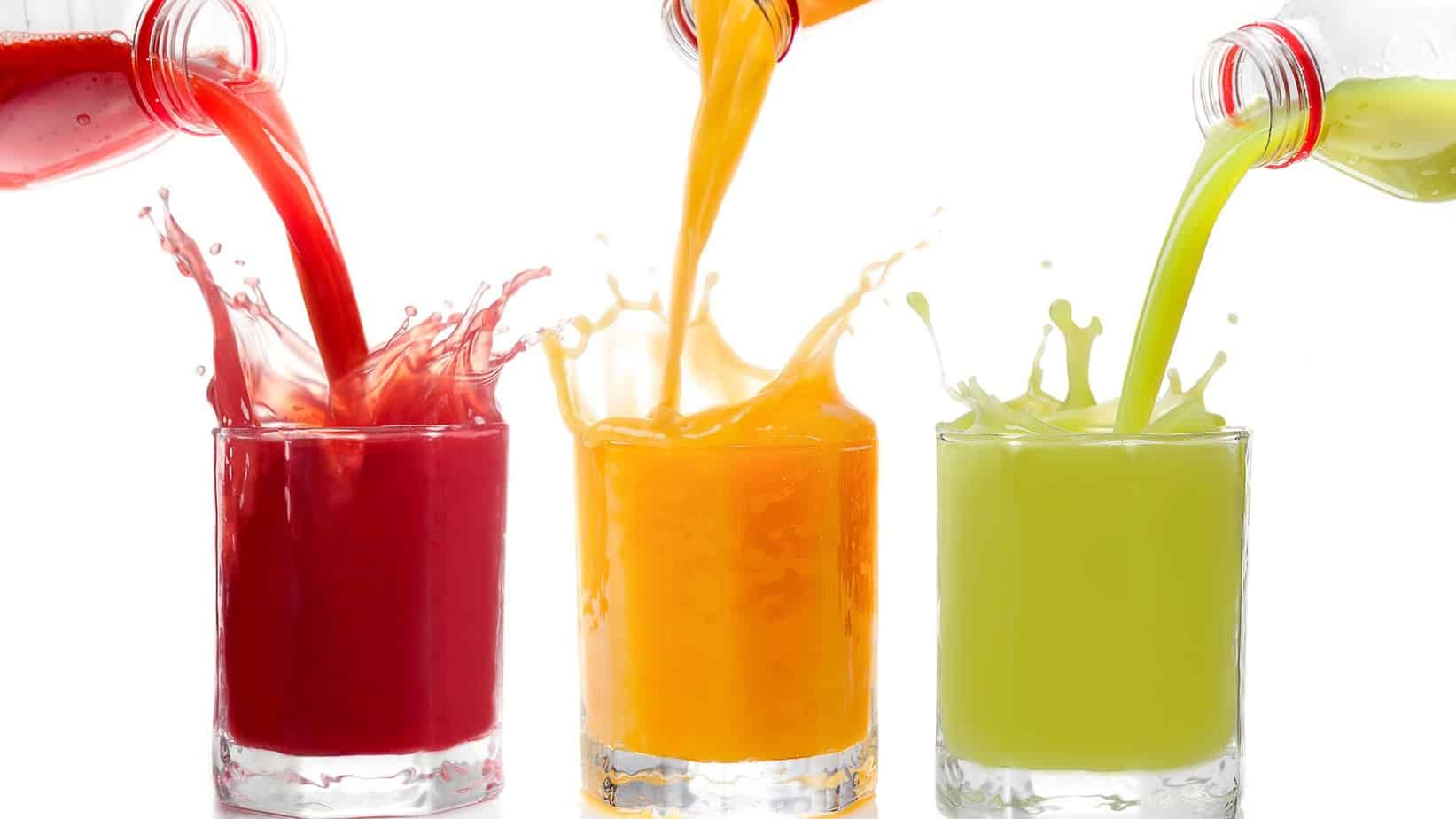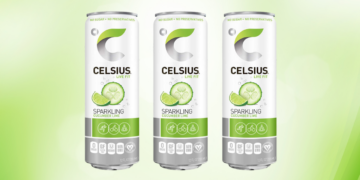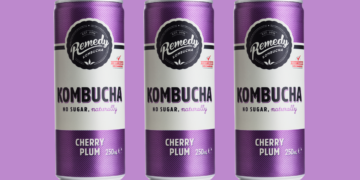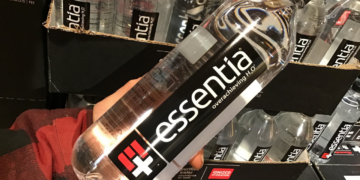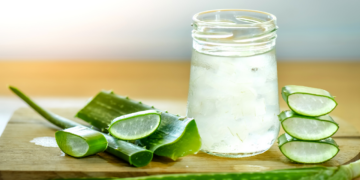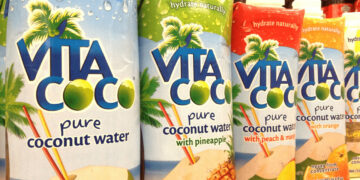Many people think of juice as a healthy substitute for fruits and vegetables. Pressed juices have gained popularity and juice “cleanses” appear to be here to stay. Recent studies suggest that due to the high sugar content in juice, this fad may be doing more harm than good to our health goals.
So, how healthy is juice? Let’s explore the health benefits of juice, the ingredients to avoid and answer the question: is fruit juice actually bad for you?
What is the Difference Between Store-Bought Juice and A Homemade Juice?
As you probably know, there are a wide variety of juices available. What is the difference between drinking store-bought juice and drinking juice you have made yourself at home?
Many store-bought juices contain added sugars and preservatives. Of course, there are plenty of healthful options available, as a rule, make your own juice when you can.
Juice companies market their products as “healthy” beverages, while some juices with less than ideal ingredients are easy to spot. Terms like “fruit-flavored drink” tell us that there is likely more inside that container than just apples and oranges. Some companies present “all-natural” juices that appear to contain nothing but healthy ingredients, though this may be misleading.
To understand what makes some juices more healthful than others, let’s examine the various methods used to make them.
Pasteurized juice

Sadly, many juices lose some of their nutritional value before they even reach the supermarket shelf. The physical process of juicing can damage beneficial nutrients found in fruit. Juice is then put through a heating process we are all familiar with by now, pasteurization. This is an important step to kill disease causing germs like salmonella. Pasteurization has the added benefit of increasing the product’s shelf life but can decrease its nutritional value as vitamins found in juice are vulnerable to destruction from heat.
Often, pasteurized juice is then infused with additional ingredients that improve the appearance and taste of the final product, including unwanted sweeteners and food coloring.
Cold-pressed juice

Cold-pressed juice is the current trend as more people come to understand that not all preparation methods result in the same final product. Cold-pressed juice is pressed or macerated to extract the fruit juice, meaning it is not exposed to a high-temperature blade that is possibly destroying some nutritive properties. While we do know that heat does destroy vitamins, we do not definitely know to what degree.
This type of juice is often sold with no added preservatives, so it tends to expire a few days after purchase. It’s safe to assume that freshly made cold-pressed juice with short shelf life has not been exposed to the processes which may impact nutritional value.
Home-pressed juice

If you have a juicer at home, you can easily make your own juice. This is by far the best way to guarantee your juice is fresh and free from extraneous ingredients. You will also have the added benefit of creating your own unique recipes with your favorite fruits!
Juice Diets
While many health-conscious people are using juice as an added source of nutrients, others go to more extreme lengths by embarking on juice-based diets. There has been a lot of debate and confusion about the health benefits of a juice detox or a juice cleanse.
What is a juice detox?

A juice detox involves cutting out all food for a period of time and ‘detoxing’ by living off juice alone. Many people on a juice detox make their own juice at home.
Studies have shown that juice detoxes are an unsustainable way to lose weight. The body detoxifies naturally and the notion that you can force your body to detoxify by only drinking juice is unfounded.
Many people embark on juice diets hoping for a quick and easy way to promote weight loss. Cleansing diets usually reduce your daily calorie intake, it’s likely that you will lose weight quickly. However, this weight loss and caloric deprivation results in your body entering a state of starvation. Once your cleanse is complete, you are likely to regain the weight you lost and possibly more. This is because you are forcing your metabolism into slowing down as a self-preservation method.
Juice cleanses also deprive your body of essential nutrients like carbs, fat, protein, and fiber. The imbalance created by a juice cleanse can lead to fatigue, low blood pressure, headaches, lean body mass loss, and irregular bowel movements.
So, Is Juice Bad For You?
We’ve established that cold-pressed and homemade juices may retain more of their nutritional value because they are not exposed to high-temperatures. It’s also best to steer clear of juice with added sugars. Check the ingredients on the nutrition fact panel. If there are ingredients listed other than fruit, you may want to keep looking for another brand.
It’s crucial to think about the way you are consuming juice. Juice cleanses, or juice fasts, involve cutting out all foods and surviving on juice alone. You will be depriving your body of important nutrients provided by a well-balanced diet. A juice detox diet can be counterproductive to your health goals.

Juice can be part of a healthful diet and should never be used as a replacement for real, solid fruits and vegetables. Juices don’t contain the fiber of a whole fruit, making them a more concentrated source of sugar. Vitamins found in juice are water-soluble and therefore excreted from the body once a certain point is reached. Meaning, if you are on your third or fourth glass of juice today, you are just drinking sugar water.
It’s also easy to overdo it with fruit juice because it tastes sweet and is easy to drink, too much fruit juice can increase your risk of type 2 diabetes. Overall, juice can be part of a healthful diet when it’s fresh and when enjoyed in moderation.
The Health Benefits of Different Juices
Certain ingredients in fresh juice can provide you with a variety of nutritional benefits. Of course, these are the same benefits available when eating whole fruit!
Here are some fantastic ingredients to use in your next homemade juice and the specific health benefits they will provide:
- For skin concerns, try beets
Beets are rich in vitamin C which may protect against blemishes and help to maintain a natural, healthy glow.
- For aging, try kale
Kale is high in antioxidants that can help to slow oxidative damage from free radicals and have protective anti-aging properties.
- For the common cold, try ginger and turmeric
Ginger and turmeric have anti-inflammatory properties that may help to reduce symptoms of a cold. If you notice a tickle in your throat, try adding ginger and turmeric to your juice.
- For hydration, try coconut water
Coconut water contains potassium and is well-known for its hydrating powers. If you need to rehydrate after a workout on a hot day, include some coconut water in your juice.
- For muscle fatigue, try blueberries
While inconclusive, blueberries have been studied to reduce exercise-induced muscle damage. Nevertheless, blueberries are full of power antioxidants and would be a great addition to any homemade juice.
Of course, these ingredients will retain even more of their nutritional value when eaten whole. However, if you can’t find a good whole food recipe for ginger and turmeric, or you simply dislike some fruits or vegetables on their own, try adding them to your glass of homemade juice.
FAQs About Juice and Juice Diets
How much juice is too much?
How much juice is too much? In most cases, more than one glass of juice a day is probably too much. Health and safety regulations suggest that juice should constitute no more than 1 of your 5 a day fruit and vegetable servings. Drinking one 150ml (specifically 118-177ml or 4-6 ounces) glass of juice per day can be a healthy way to supplement your fruit and vegetable intake.
How do I find healthy juices?
Here are some tips on how to sort the good from the bad when it comes to juice shopping.
Look for:
- Organic
- Unpasteurized
- Fresh-pressed or cold-pressed
- All-natural ingredients
- Short shelf life
Avoid:
- “Juice drinks”
- “Contains real fruit juice”
- “From concentrate”
- Long shelf life
- Added sugar
- High sugar content
- Added food coloring
What will happen if I drink expired fresh-pressed juice?
One of the downsides to ‘healthy’ juice is the reduced shelf life. Cold-pressed juices should never be consumed after their expiration date. This is because they are not pasteurized and therefore not protected against bacteria growth. If you have accidentally consumed an expired fresh-pressed juice, you may experience a stomachache or vomiting. If your symptoms do not pass within a few hours, seek medical advice.
Final Thoughts
Is juice bad for you? The answer is complicated and depends on a few key factors.
Juice may have fewer positive effects than many would like to believe, but it only has negative effects when it’s consumed excessively.
Avoid juice cleanses or detoxes. Instead, reap the nutritional benefits of juice by drinking one glass (no more than 177ml or 6 ounces) of fresh fruit juice a day.

